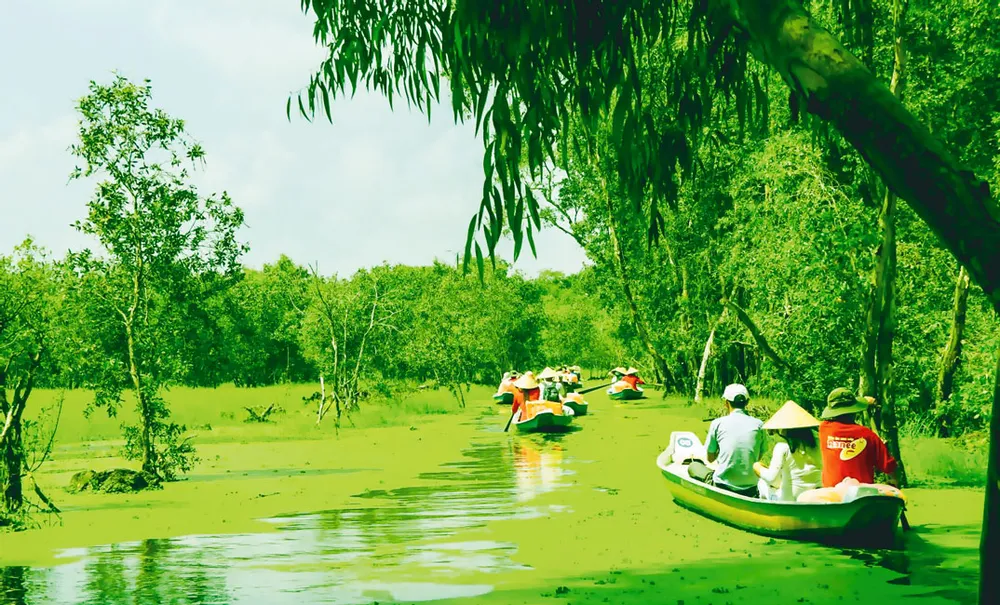
The current image of Vietnam worldwide is that of a safe destination country to visit. When looking at best ways to once again revive and stimulate the tourism industry, the Mekong River Delta Region is emerging as the safest for tourists and therefore focus must now be to enhance and speed up all necessary measures to create this region into a safe tourism brand.
Safe destination
Vietnam has not recorded any Covid-19 cases for many weeks, and has remained an excellent example of successfully containing the pandemic since the very beginning of its emergence early this year. On the other hand, countries across Europe are now planning to impose new and stricter lockdown rules to slow the spread of the disease and combat a second resurgence of coronavirus. The current image of Vietnam as a safe tourist destination now needs to be effectively promoted and seen in a very practical perspective. Safety measures must remain at the core of this promotion, with a revival of the economy as the target. This effort may seem difficult to achieve in the current situation but it is not entirely impossible either.
Vietnam is clearly a very safe destination for travellers, and the Mekong Delta Region is one of the safest places to visit and enjoy the serenity of the surroundings freely without fear of the pandemic. The country was able to tackle very effectively the spread of the disease in the last two outbreaks, but this achievement does not guarantee any future safety. If we remain subjective, neglectful, complacent and are sloppy in the implementation of safe disease control measures, we will certainly suffer the consequences and setbacks to any development plans.
The sudden spurt of the disease a few months back in Da Nang and other central provinces of Vietnam, which forced the government to enforce a strict lockdown of the entire Da Nang City and some parts of neighboring provinces, should prove as a practical lesson in being caught off guard. This lesson must serve as a tough guideline to all persons concerned in marketing and promoting the Mekong Delta Region as a safe travel destination. As great credibility is involved and rests solely in the hands of those associated with organising and implementing any tourist activity, many practical solutions must remain the focus.
Tourism is a very important economic sector that is strongly linked with other equally important sectors such as transportation, hospitality and entertainment. Hence, ensuring safe travel requires that all concerned in this vital link follow the same safety health care procedures. Safety needs are not only poised for tourists but also for the society in general. Therefore, safe tourism must incorporate a wide spectrum of activities so as to respond appropriately in the current situation.
Safety criteria
While implementing various criteria for safe tourism much consideration must be given to avoid unpleasant obstacles and discomfort to tourists. Once the pandemic is effectively wiped out, it will then be much easier to flow back to normalcy rather than once gain go through the process of revamping the entire link chain and administrative procedures. Accordingly, safe travel criteria must integrate three important features.
Firstly, travel safety requirements and all necessary criteria to ensure tourists are well protected from the disease must be linked to all tourism associated activities. An effective and smooth link must be established throughout the system between transportation, accommodation, and all such related activities, because if there is no connection with even one link or activity then all security measures will fail. Therefore, the Vietnam National Administration of Tourism and the People's Committees of all localities in the Mekong Delta Region must strongly connect and work together in smooth coordination to make this destination a success.
Secondly, travel safety must be implemented strictly, practically and efficiently with simple and easy rules and criteria. Recently, a few localities made efforts to promulgate a remarkable safe tourism criterion, but it was too heavy on epidemiological safety and hence not viably applicable. It is therefore important to build and promote a unified framework for tourist safety that will operate on the basis of technology and not rigid measures that would most likely discourage tourists.
Thirdly, all safety criteria will require technology that is practical but also flexible. By increasing the application of information technology and offering a sense of safety that is not too rigid, the cultural values and local cuisines of the Mekong Delta Region will be better promoted. A smart tourism ecosystem in line with the latest technology will smoothen the process of access to data for tour guides, tour operators, accommodation facilities, management agencies and travellers. Mobile Apps can also offer key information to tourists on available destinations and related services.




















